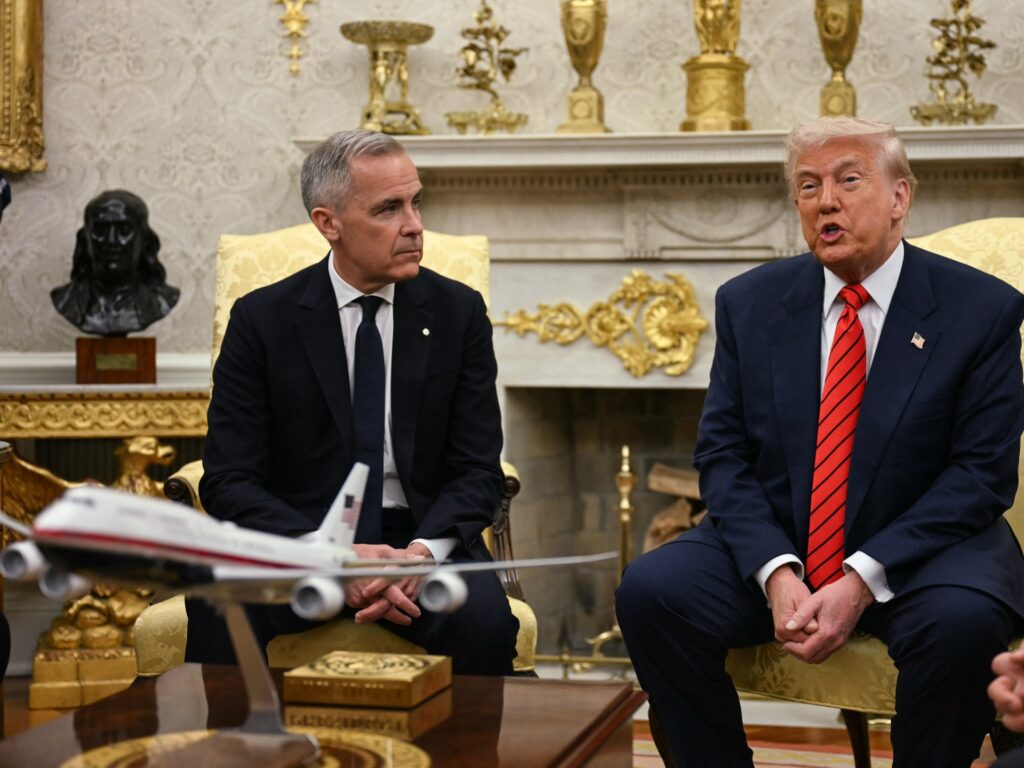
WASHINGTON, D.C. – In a dramatic escalation of trade tensions, President Donald Trump announced the termination of all trade discussions with Canada, citing a new digital services tax that he claims will cost U.S. companies billions.
Breaking: Trade Talks Terminated
As Canada moves forward with its digital services tax on both foreign and domestic technology firms, President Trump has responded by ending trade negotiations and threatening new tariffs on Canadian exports. In a post on his Truth Social platform, Trump described the tax as a “direct and blatant attack on our country,” and announced plans to impose tariffs within days.
U.S. companies like Amazon, Meta, Google, and Uber could face an estimated $2 billion in new tax liabilities under Canada’s policy.
Immediate Impact on U.S.-Canada Relations
The announcement marks a sharp return to strained relations between the two nations, reversing a cooperative period since Mark Carney’s election as Canada’s Prime Minister in March. The U.S. remains Canada’s largest trading partner, with over 80 percent of Canadian exports heading south of the border. In 2024, bilateral trade exceeded US$762 billion, with Canada enjoying a goods surplus of $63.3 billion.
The disruption could affect key sectors like automobiles, minerals, and energy, potentially causing widespread economic repercussions.
Key Details Emerge on Canada’s Digital Tax
Canada’s Digital Services Tax Act (DSTA), effective since June last year, imposes a 3 percent levy on tech revenues from Canadian users. Initially proposed during the 2019 federal election, it applies to companies with global revenues over $820 million and Canadian revenues exceeding $14.7 million. Notably, the tax is retroactive to January 2022, a point of contention for many businesses.
Digital services affected include online marketplaces, social media platforms, digital advertising, and user data sales.
Industry Response and Domestic Pushback
Prime Minister Carney faces pressure from Canadian businesses, which argue that the tax increases operational costs and risks U.S. retaliation. The Business Council of Canada has long warned that a unilateral digital tax could damage economic ties with the U.S., Canada’s most significant trading partner.
In response, the Council suggested Canada propose eliminating the tax in exchange for the removal of U.S. tariffs.
By the Numbers
- 80% of Canadian exports go to the U.S.
- Total bilateral trade in 2024: US$762 billion
- Canada’s goods surplus with the U.S.: $63.3 billion
What Comes Next for U.S.-Canada Trade?
Trump has announced a Section 301 investigation into the DSTA’s impact on U.S. commerce, potentially leading to further punitive measures. White House National Economic Council Director Kevin Hassett criticized the tax, calling it “almost criminal” and indicating that Canada might need to reconsider its position.
Meanwhile, Canadian Finance Minister Francois-Philippe Champagne indicated that the digital tax could be part of broader trade discussions, though these talks are now uncertain.
Background Context: Global Digital Tax Landscape
Canada’s digital tax is part of a broader trend, with countries like France, the UK, and others implementing similar measures. The U.S. has consistently opposed these taxes, which have been a point of contention in OECD-led global tax negotiations.
Canada delayed its tax implementation until 2024, hoping for progress in international talks. However, with negotiations stalled, Canada proceeded with its tax.
Expert Analysis and Regional Implications
Experts warn that the U.S. response to Canada’s tax could influence future trade negotiations globally, particularly as the European Union considers its digital tax policies. Trump’s administration has previously objected to similar taxes from EU countries, threatening tariffs in response.
With high-stakes negotiations ongoing between the U.S. and EU, the outcome of the Canada-U.S. dispute could set a precedent for future digital tax discussions.
As tensions rise, the world watches closely, anticipating potential shifts in international trade dynamics and digital taxation policies.






